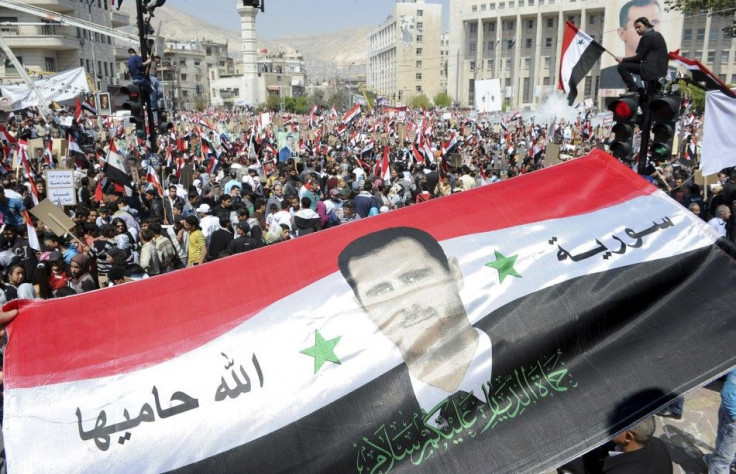Syria begins moves to drop emergency laws

The Syrian government will establish a judicial committee that will consider the removal of its emergency laws, according to the state news agency.
Under a directive by President Bashar al-Assad, a judicial committee has been formed to prepare a study with the aim of abolishing the emergency law, said the SANA news agency.
The committee should finish its work by April 25.”
The emergency rule, which has been in place since 1963, gives state security forces extraordinary powers over the arrest and detention of suspects and imposes other curbs on personal freedoms.
Anti-government protesters have long demanded lifting the emergency rule.
The news comes one day after President Bashar al-Assad delivered a speech in which he offered no reforms whatsoever and instead the unrest in the country on conspirators that he vowed to defeat.
An Al Jazeera reporter in Damascus cautioned that removing the emergency law will require some time.
The president can't just unilaterally lift emergency law - it's quite a complicated process, he said.
I think even a Syrian legal expert would take some time to explain the steps that go into that. It has to go through parliament and in a number of other places as well.
Assad’s speech was gravely disappointing to many Syrians, who had expected a concrete list of reforms.
Patrick Seale, a Middle East expert and author, told Al Jazeera:
Syria does need reform on many fronts. We have to try to understand his situation ... [but] we don't know the extent of domestic pressures on him [Assad]. He is, of course, surrounded by a lot of people - several thousand people perhaps - who have a stake in the stability of the regime. He has to think of them too. The interesting thing about the speech, I think, is what it reveals about him. There's obviously a stubborn streak in his character, which we know he inherited from his father. He doesn't like to be pushed around. If you look at the last 10 years of his rule, he has been pushed a great deal; he has survived a whole series of crises, which have obviously shaped his present character.
Thus far, after more than three weeks of protests, dozens of demonstrators have been killed by security forces – primarily in the southern city of Deraa and the northern coastal town of Latakia -- while hundreds have reportedly been arrested and detained.
Protesters are calling for more demonstrations on Friday after Muslim prayer services.
The Al Jazeera correspondent continued: Friday is going to be a real ... precipitating moment here: how people will protest. Will they continue to protest for just reforms or could we see something more drastic perhaps - people protesting to end his rule?
© Copyright IBTimes 2024. All rights reserved.











